
Dr Nisha Joseph presents the case of a woman with transplant-ineligible multiple myeloma and discusses considerations when choosing frontline treatment regimens.

Your AI-Trained Oncology Knowledge Connection!


Dr Nisha Joseph presents the case of a woman with transplant-ineligible multiple myeloma and discusses considerations when choosing frontline treatment regimens.

A look at how to best sequence therapies for renal cell carcinoma from the front-line setting on.

Thought leaders explain how they dose IO/TKI treatment regimens to better manage side effects in patients with renal cell carcinoma.
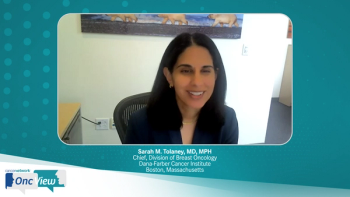
Sarah M. Tolaney, MD, MPH, describes her usage of pertuzumab, trastuzumab, and hyaluronidase-zzxf subcutaneous injections in her clinical practice during the COVID-19 pandemic for patients with HER2+ breast cancer.

An expert oncologist explains the combination subcutaneous injection therapy of pertuzumab, trastuzumab, and hyaluronidase-zzxf for patients with early-stage HER2+ breast cancer.
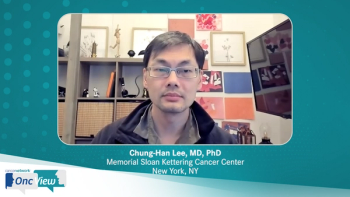
Chung-Han Lee, MD, PhD, provides a commentary on strategies for preventing and managing treatment-related adverse events in metastatic RCC.
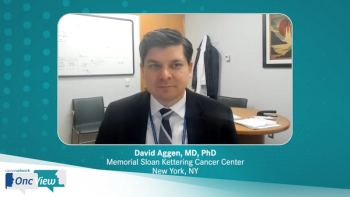
David Aggen, MD, PhD, describes the challenges of balancing treatment efficacy versus toxicity and tolerability in patients with kidney cancer.

Uday R. Popat, MD, spoke about the decision to use post-transplant cyclophosphamide vs tacrolimus plus methotrexate to prevent graft-vs-host disease.
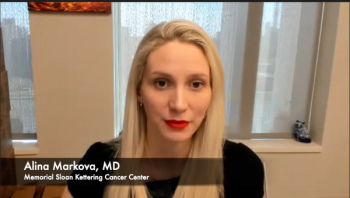
Alina Markova, MD, highlights important findings from a study assessing topical ruxolitinib INCB018424 phosphate 1.5% cream as a treatment for non-sclerotic and superficially sclerotic chronic cutaneous graft-versus-host disease.

Shared insight on the GMMG-HD7 study, which utilized a frontline isatuximab-containing quadruplet regimen in patients with newly diagnosed multiple myeloma.

Expert perspectives on frontline daratumumab-containing quadruplet regimens in the context of recent clinical trials in newly diagnosed multiple myeloma.

A neuro-oncologist explains the prevalence of leptomeningeal metastases in HER2+ breast cancer and her preferred method of treatment.

Oncologists debate the use of neratinib for metastatic HER2+ breast cancer treatment in the context of the HER2CLIMB clinical trial data on tucatinib.
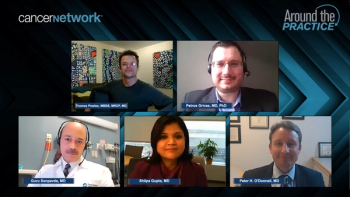
Experts comment on the typical urothelial cancer maintenance therapy duration in their practice, and situations in which they might consider interrupting treatment while maintaining patient response.

Petros Grivas, MD, PhD, shares a clinical scenario of a cisplatin-ineligible patient with high PD-L1 expression and lymph node metastases, and experts weigh in on recommended treatment options.

Drs Ajay Nooka and Jonathan Kaufman discuss maintenance and consolidation treatment strategies for transplant eligible multiple myeloma.
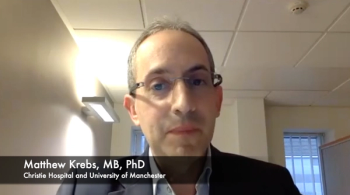
Matthew Krebs, MB, PhD, spoke about how subcutaneous amivantamab can best be utilized in future clinical trials.
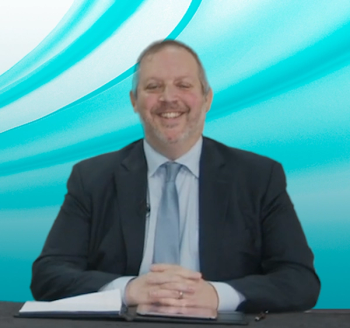
Experts discuss how they select a treatment regimen for a newly diagnosed multiple myeloma patient, and how they measure a successful treatment response.

Dr Scott Tykodi provides advice for community oncologists managing patients with renal cell carcinoma.
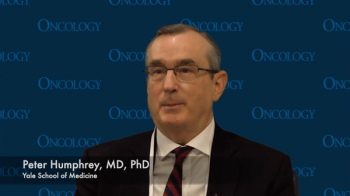
At the 15th Annual Interdisciplinary Prostate Cancer Congress® and Other Genitourinary Malignancies, Peter Humphrey, MD, PhD, spoke about the role of pathology in renal cell carcinoma.
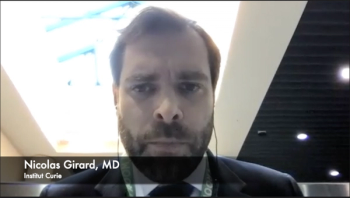
Nicolas Girard, MD, speaks with CancerNetwork® about the updated safety findings of nivolumab and chemotherapy in resectable non–small cell lung cancer.

David M. O’Malley, MD, spoke about unmet needs of patients with advanced microsatellite instability–¬high or mismatch repair deficient endometrial carcinoma and the clinical benefit pembrolizumab provides.

Sarah M. Tolaney, MD, MPH, reviews the treatment options for patients with early-stage HER2+ breast cancer in the frontline setting.

Sarah M. Tolaney, MD, MPH, provides an overview of how goals of care and prognosis differ between patients with early-stage HER2+ breast cancer and advanced or metastatic HER2+ breast cancer.
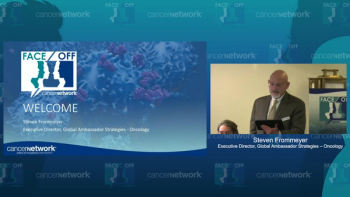
Nikesh Shah, MD, presents a trial published in Lancet Oncology in 2018 on the use of inotuzumab plus mini-CVD in the frontline setting for older patients with ALL.

Steven Frommeyer kicks off a new and exciting competitive series from CancerNetwork® and introduces the first 2 teams.
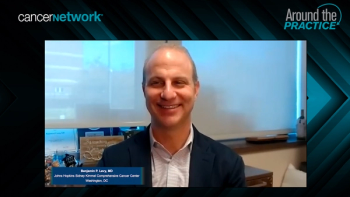
A broad discussion on the role of immunotherapy in newly diagnosed NSCLC in both the neoadjuvant and adjuvant settings.
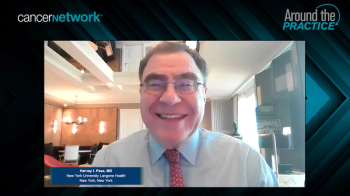
Shared insight on a patient profile of newly diagnosed non–small cell lung cancer with high PD-L1 expression and no driver mutation.

Nina Shah, MD, spoke about her key takeaways from a sub-analysis of the phase 2 KarMMa trial assessing correlates of complete response among those treated with idecabtagene vicleucel in relapsed/refractory multiple myeloma.
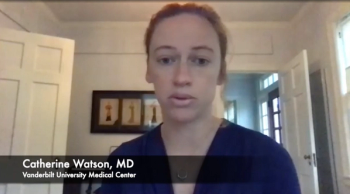
At SGO 2022, Catherine Watson, MD, spoke about how to encourage patients with ovarian cancer to seek genetic testing.